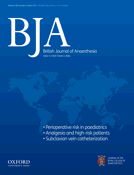Unethical Anaesthesia Clinical Research, should all journals require proof of IRB approval before publication?
BBC health reported this past week on the news that Professor Dr. Joachim Boldt, the former head of anaesthesia at the Klinikum Ludwigishafen hospital in Germany had published 102 papers in leading academic journals without first having obtained ethics committee (EC) or institutitional review board (IRB) approval for the research.
These studies on patients undergoing surgery or intensive care led to the development of new guidelines for managing the administration of colloids for fluid replacement during surgery. Questions are now being asked about the validity of these scientific findings and whether any fabrication of research data took place.
When Dr Boldt submitted research for publication he indicated that EC/IRB approval had been obtained, a claim that was not checked by any of the journals. It now appears that EC/IRB approval had not been obtained. Last week the editors of 16 leading publications formally retracted the papers they had published from Dr Boldt.
 The news that an anaethetist failed to obtain informed consent or EC/IRB approval for clinical research comes as no surprise to me.
The news that an anaethetist failed to obtain informed consent or EC/IRB approval for clinical research comes as no surprise to me.
I conducted anaesthesia breathing system research in the early 1990’s in a joint industry/academic partnership program. My research was published in the British Journal of Anaesthesia, who also published several studies from Dr Boldt.
At that time, many of the anaethestists I worked with questioned the need for patient informed consent for research with a new breathing system. They argued the patient would have to use one anyway during the operation, and even if this was a research study it was not necessary. Requiring formal signed informed consent for the clinical trials I did was a novel experience for some of the anaethetists I worked with.
Indeed, if the editors of the journals were to look closely at european clinical research related to medical devices published prior to EC Directives and standards such as EN540, ISO14155 coming into effect, they might find that many researchers did not obtain IRB/EC approval or informed consent for that work.
I think the journal editors are right to condemn the lack of research integrity that took place with Dr Boldt. All of us in the pharmaceutical, biotechnology and medical device industries who undertake clinical trials to bring new products to market rely on the goodwill of patients to participate in the medical research process.
The news that Dr Boldt did not respect the rights of individuals, and failed to follow the Declaration of Helsinki, the fundamental “Ethical Principles for Medical Research Involving Human Subjects”, published by the World Medical Association, undermines the integrity of the clinical research process for all of us.
Moving forwards, I would suggest that the editors of journals require authors to submit a copy of the EC/IRB approval letter/notification with their manuscripts. Any form that just requires you to tick a box or sign off to show compliance is open to potential abuse by a very small minority.
All EC/IRB approvals have to be in writing, so this step would not be an onerous burden and would provide some confidence of valid ethics approval, and in the process support the integrity of the clinical trials that we all rely upon.
If you would like to follow this issue in more detail, Ivan Oransky, on his excellent Retraction Watch Blog has been writing about this story since last October.